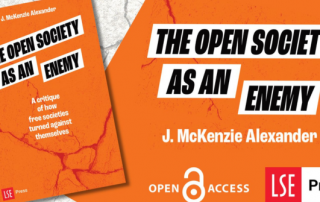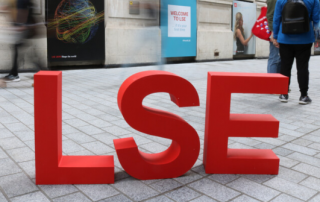Book Review: The Open Society as an Enemy
LSE PhD student Mazlum Özkan wrote a review of J. McKenzie Alexander‘s new book ‘The Open Society as an Enemy’ for the LSE book review blog.
J. McKenzie Alexander‘s The Open Society as an Enemy revisits Karl Popper’s foundational work on the concept of the “open society” in relation to contemporary threats to democratic values, from the rise of […]










Connect with us
Facebook
Twitter
Youtube
Flickr